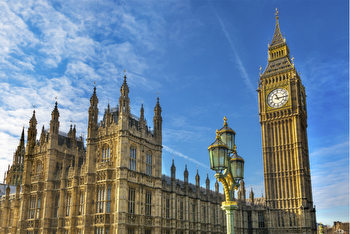Gambling reform: Where’s the evidence?

The UK Department for Digital, Culture, Media & Sport has once again issued a call for evidence on key topics such as gambling harm and the priorities the White Paper on gambling reform should focus on. In this column, Pavlos Sideris, Director at Double Up Media, explains what this means for the UK industry.
The call by the Department for Digital, Culture, Media, and Sport (DCMS) for evidence in relation to the White Paper and consultation that went with it took place earlier this year.
This may feel like a case of deja vu for many in the industry, and it is; we have been here before. However, it is also positive in an industry where operators continually advocate for an evidence-led approach to regulation. More evidence and the DCMS weighing in allowed operators and stakeholders a formal chance to air their opinions.
As part of the call for evidence, the UK Parliament website listed the following questions:
What is the scale of gambling-related harm in the UK?
What should the key priorities be in the gambling White Paper?
How broadly should the term, ‘gambling’, be drawn?
Is it possible for a regulator to stay abreast of innovation in the online sphere?
What additional problems arise when online gambling companies are based outside of UK jurisdiction?
Let’s take a look at each of these questions.
1. What is the scale of gambling-related harm in the UK?
The scale of gambling harm in the UK is an ongoing debate, and the view alters depending on the media source. According to the UKGC, problem gambling figures have been steadily falling in the UK and are stable at 0.2% of the population (previous survey data for 2021 shows it as 0.4% and in 2020 0.6%), with the highest prevalence rates (0.4%) in the 16-24 age group. Moreover, 0.9% were at moderate risk, and 1.4% were at low risk of becoming problem gamblers.
Depending on the source, 0.2% is either wielded as an ever-failing regulatory success or reported as “one-third of a million of us are problem gamblers.” While 0.2% may sound insignificant, in a country with a population of over 68 million, it is hundreds of thousands of vulnerable people.
While there is undeniably a problem with gambling addiction in the UK, the majority of players do safely gamble, using it as a form of entertainment, but this is often not reflected in mainstream media, which more often than not tells first-hand accounts of gambling addictions and the current failings of responsible gambling measures. This exerts considerable, increasing, and most likely not proportional pressure on all stakeholders and regulators.
Take, for example, this opinion piece published by the Guardian, which discusses suicide, marriage and family breakdowns, debt, fraud, and desperation, painting a picture of the gambling industry as purely exploitative and reliant on destroying lives. The article is a first-hand account of the journalist’s descent into gambling addiction and is therefore highly charged emotionally. But it also cites studies on vulnerable gamblers and quotes a House of Lords Select Committee Report on Gambling Harms in saying that “5% of customers are responsible for 70% of betting companies’ revenue”. That quote however does not appear in the report, what it does say is that “60% of (gambling industry) profits come from 5% who are already problem gamblers, or are at risk of becoming so.”
This is not to suggest that there isn’t an obvious and serious issue with 60% of gambling revenue coming from 5% of gamblers who are either problem gamblers or at risk of becoming so, but rather to highlight the unbalanced nature of gambling reporting in the UK press.
Coverage rarely focuses on the job creation or huge economic benefits of the gambling industry. One thing that this type of first-hand reporting does contribute is vulnerable players’ experiences. For example, the article highlights issues with self-exclusion programs in a frank manner and offers insight that players may not give directly to operators or regulators. Still, it is worth asking if this material was not more appropriate through, for example, the DCMS call for evidence and consultation.
2. What should be the key priorities in the gambling White Paper?
This question may have some industry players reeling and others celebrating. After months of speculation regarding affordability checks, per-player budgets, and stricter measures, it implies reconsidering what the White Paper should even cover.
Have we gone back to the drawing board? Potentially, but whether that is cause for celebration remains to be seen, although it does suggest that anyone expecting the publication of the White Paper within the first quarter of 2023 could be wrong. It would also confirm what Flutter CEO Peter Jackson predicted back in November last year, that new government ministers will want to make their mark on the White Paper, leading to further delays and uncertainty for operators.
3. How broadly should the term ‘gambling’ be drawn?
This question is fascinating as it suggests that the DCMS and lawmakers might be looking to broaden the scope of how the UK defines gambling and the included products. It is definitely time for this, especially given the scope of the Gambling Reform is to update UK gambling laws fit for the modern age (thereby recognising a gap between the reality of the industry and products and regulation).
Gambling, especially online, has changed massively since 2005. The products have evolved from being strongly focused on online slots and table games such as roulette to offering products that include social gaming or sweepstake features that can be paid for with cryptocurrencies in a hybrid live casino/streaming environment.
However, for all the talk of product evolution, we can also note that things haven’t changed that much. In the UK, slot sites generate nearly half, £3bn, of the total £6.4bn gross gambling yield recorded by online gaming operators and online slots continue to be the most popular online casino product in the market.
But regardless of the product mix, this is still likely to mean more regulations covering a broad range of activities, which shouldn’t cause too many issues as proportional regulations have always been supported by operators, so long as the scope of the definition and any rules that follow are appropriate. In which case much will depend on how large that scope is. For example, if loot boxes in video games suddenly fall into the category of real money gambling, a new licensing framework, and potential legal quagmire, could follow.
4. Is it possible for a regulator to stay abreast of innovation in the online sphere?
This leads nicely into this question, which asks if regulators can stay or in fact are abreast of all the new products, trends and innovations in the online industry. This seems like a quickly answered question, as again, the Gambling Review recognises the situation whereby reform has fallen behind the industry. Plus, the fact that the UKGC continually adds new regulations and guidance through its living Licensing Conditions and Code of Practice reconfirms the situation whereby the industry is proactive toward innovation, and the principal regulator is reactive.
Moreover, in a technological world that has seen the rise and fall of unregulated crypto currencies, crypto gambling, NFT tokens and more in the past few years, it’s doubtful that a regulator will be up-to-date with all those issues. It’s also in the nature of most regulators to be reactive, but from a simplistic view, there is so much investment in pushing technology and gaming forward and those resources can not be matched by a single regulatory gambling body such as UKGC.
5. What additional problems arise when online gambling companies are based outside of UK jurisdiction?
According to research from the Betting and Gaming Council, the UK black market is booming as “British punters using unlicensed sites has more than doubled in just two years, from 220,000 users to 460,000, and the amount staked is now in the billions of pounds.” There are multiple issues caused by offshore companies targeting UK consumers, many of which regulators are aware of, including compromising player safety, allowing self-excluded consumers to gamble, removing tax revenue from the UK industry, and more.
There is also the fact that gambling brands that are licensed in jurisdictions like the Isle of Man (but not in the UK) and do no business in the UK can advertise and market through sports sponsorship. This is particularly relevant to Asian gambling companies sponsoring English Premier League teams. While doing no business on British soil, UK players are exposed and potentially encouraged/tempted to play offshore by such sponsorship. In addition, the Asian countries those operators target on the whole are unlicensed and unregulated markets.
Overall, the fact that regulators are looking at addressing offshore gambling is positive. This is because offshore companies draw revenues away from licensed, fair, and safe sites and damage the industry's legitimacy in its entirety.

































